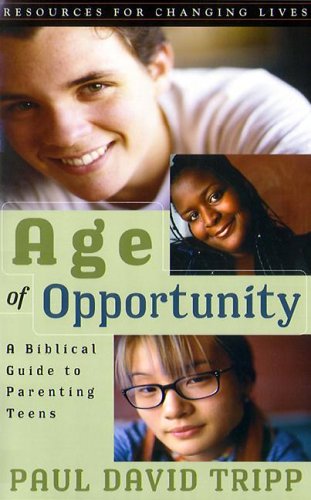Quotes about Parenting-Teens
If you are inclined to be angry at someone in leadership of your church because your child does not have fun in church, then first consider if the source of the problem is in the heart of your child. Please don’t make the criteria for judging the success of a church’s efforts at reaching children and teens the fun-value of the meetings. God did not command the church to provide entertainment for your kids. And if you must speak out about it at all, attempt to increase, rather than to decrease the intensity and effectiveness of prayer and Bible study as a means to reach the hearts of the children. If you chose to do otherwise, you could be working against the Spirit.
Seriousness in Our Children and Teens, Christian Communicators Worldwide, www.CCWtoday.org. Used by Permission.
Eighty eight percent of the teens in evangelical churches will walk away from Christianity. Some seventy percent of those in church youth groups (teen Sunday school) will do the same. Parental abdication is not working. God is not blessing it.
Gospel-Powered Parenting, 2009, P&R Publishing, p. 180, Used by Permission. Get this book!
Although you may be able to “control” young children, the key word for teenagers is “influence.” Here are five words that describe different ways you can influence teens. 1. Teach – provide them with new information or help them understand another facet of life. 2. Encourage – remind them of the benefits of moving in the right direction. 3. Entreat – earnestly ask them to act in a mature, responsible, and wise way. 4. Admonish – warn, caution, or advise them by anticipating possible negative consequences. 5. Persuade – use relationship, incentives, and natural consequences to motivate them to make wise choices (Scott Turansky and Joanne Miller).
Say Goodbye to Whining, Complaining, and Bad Attitudes, In You and Your Kids, National Center for Biblical Parenting, 76 Hopatcong Drive, Lawrenceville, NJ 08648, www.biblicalparenting.org, 1-800.771.8334, email parent@biblicalparenting.org.
Is my teen turning away from me or is he turning away from the truth (Todd Murray)?
What’s my goal for my kids? Is it just to keep them off drugs, get good grades and come out to church with the family? That might make for training a good American, but not necessarily for training a good Christian. I want my children to see their role as a Christian is not only preventing themselves from being stained by the world (here is where many Christian parents stop), but also empowered by the Holy Spirit to be used as an agent to transform the world. It’s helping them to understand, modeling it for them and giving them opportunities to be ambassadors for Christ.
Sermon, Purposefully Misplaced in Babylon – part 2, Revelation 14:1-20, February 21, 2015.
So parents, where are your teenagers with the Lord? I am not asking if they come to church or even profess Jesus. The demons believe in Jesus and thousands of unbelievers will be attending churches all over America this morning. I am asking you where is there heart with the Lord? Do they have an interest to read their Bibles? Are they engaged in a ministry at the church? Are they reading any Christian literature or listening to any Christian music? Are they posting anything about their faith on social media? Have they memorized Scripture lately? Do they enjoy being with other Christian teens? Would they come to church without your prodding? Are they telling any of their friends about the Savior? As Jesus said, the fruit reveals the nature of the tree. Based on the fruit, is Jesus Christ really number one in their lives?
The rules and regulations approach that focuses on keeping the teenager “out of trouble” will ultimately fail because it does not deal with the heart. As Paul so powerfully states, it “lacks any value for restraining sensual indulgence.” What he means is that it does not deal with the source of a person’s wrong behavior, the sinful desires of the heart. Peter says that the corruption in the world is caused by evil desires (2 Peter 1:4). We have to work at the level of the heart desires with our teenagers, or we will win lots of battles and ultimately lose the war. It’s not enough to be detectives, jailers, and judges. We must pastor the hearts of our children with the kind of faithful, watchful care for their souls that we receive from our heavenly Father.
Age of Opportunity, P&R Publishing, 1997, p. 111, Used by Permission. Get this book!
Rejection of parental authority is a rejection of God’s authority. And the rejection of God’s authority is, in fact, claiming his authority as my own. It is an attempt to be God. Whether your teenager realizes it or not, the stakes could not be higher!
Age of Opportunity, P&R Publishing, 1997, p. 120, Used by Permission. Get this book!
In times of struggle and failure, we need to do more than pronounce judgment on what’s wrong and enforce punishment. We need to talk, discuss, question, evaluate, engage, and interact with our teenagers, hoping that God will use these moments of opportunity to open their eyes a little more to who they really are and to their constant need for Christ.
Age of Opportunity, P&R Publishing, 1997, p. 124, Used by Permission. Get this book!
There are desires that make the teenager susceptible to the temptation to rebel: The desire to be an individual and think for oneself, the desire for freedom, the desire to try new things, the desire to test the boundaries, the desire for control, the desire to make one’s own decisions, the desire to be different, the desire to fit in, and the desire to be accepted. These, with a host of other desires, all fueled by the autonomy and self-centeredness of the sin nature, can surely lead the teenager astray.
Age of Opportunity, P&R Publishing, 1997, p. 25-26, Used by Permission. Get this book!
We have found it important not to enter the family worship time with rigid expectations and a rigid plan. We want an atmosphere of freedom, where our teenagers feel free to ask questions, verbalize doubts, express confusion, debate applications, and try to draw inferences and applications, all without the fear of being silenced, rebuked, or ridiculed. We want the truth to connect, to convict, and to capture our teenagers, so we are in no hurry. We want to give them time to understand and the Spirit time to work. This time is for them. We have no expectations about the amount of material we cover and our goal is not to get our teenagers to agree with us. The goal is to stimulate in them a hunger for God, so we want to be relaxed, patient, and creative.
Age of Opportunity, P&R Publishing, 1997, p. 186, Used by Permission. Get this book!
I am always amazed at how quickly defiant teens find each other. The rebellious teen who is new to a school will find the fellow rebels before recess. Why is this? A teen falls in with rebellious company because he is a rebel, he does not become a rebel because of the company he keeps.
Shepherding a Child’s Heart, Shepherd Press, 1995, p. 212. Used by Permission. Get this book!
Determinism makes parents conclude that good shaping influences will automatically produce good children. This often bears bitter fruit later in life. Parents who have an unruly and troublesome teenager or young adult conclude that the problem is the shaping influences they provided. They think if they had made a little better home, things would have turned out OK. They forget that the child is never determined solely by shaping influences of life. Remember that Proverbs 4:23 instructs you that the heart is the fountain from which life flows. Your child’s heart determines how he responds to your parenting.
Shepherding a Child’s Heart, Shepherd Press, 1995, p. 32. Used by Permission. Get this book!
When children are little we often fail to engage them in significant conversation. When they try to engage us, we respond with uninterested “uh huh’s.” Eventually they learn the ropes. They realize that we are not interested in what goes on in them. They learn that a “good talk” for us is a “good listen” for them. When they become teens, the tables turn. Parents wish they could engage their teens, but the teens have long since stopped trying.
Shepherding a Child’s Heart, Shepherd Press, 1995, p. 96. Used by Permission. Get this book!
The most powerful way to keep your children from being attracted by the offers of comraderie from the wicked is to make home an attractive place to be. Young people do not run from places where they are loved and know unconditional acceptance. They do not run away from homes where there are solid relationships. They do not run from homes in which the family is planning activities and doing exciting things.
Shepherding a Child’s Heart, Shepherd Press, 1995, p. 221. Used by Permission. Get this book!
Teenagers typically share certain characteristics. First, they are going through the stage in life where they believe they know all there is to know and what they don’t know isn’t worth knowing. Second, the hormones and chemicals charging through their brains and bodies hinder them, often rendering them incapable of reasoning as rational adults. They want what they want when they want it, and often don’t have any clue that what they are asking for will hurt them. It is the job of the parents to keep their children safe from themselves as they negotiate this difficult time of life.
The worst thing we can do is try to become our children’s friend instead of parent.







